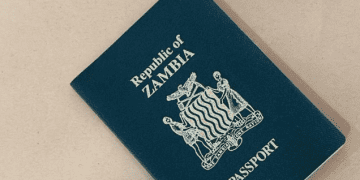Kelvin Kamayoyo, Zambian Economist, Scholar and BuyZed Chief Technical Advisor has noted that it is now even more compelling to conserve the Zambezi River than ever before because the economy is transitioning from “brown economy” to “green economy” for growth and sustainable development. However, climate change events are a major threat to the healthy of the Zambezi River and its ecosystem including human livelihoods and welfare of wildlife. The Zambezi River and its basin is naturally endowed with vast arable land and abundant water resources and supports cage fishing, hydropower generation, tourism, livestock production, cultivation of crops and growing of fruit trees.
Today, the African Rivers including the Zambezi River are in severe threat from climate change events and the World must unite to conserve or protect the healthy of the Rivers. It is vividy that climate change is variedly impacting the environment through unprecedented heavy rains and floods, frequent droughts, sudden rising temperatures and crop production instability. Therefore, conserving Zambezi River can act as a strong and reliable foundation for buttressing climate smart agriculture, water harvesting techniques and green infrastructure which are vital approaches in pursuing climate change adaptation interventions. Climate change is real and is here to stay but before its mutation becomes sporadic its important to conserve essential natural resources and increase awareness about its potential adverse effects.
Zambezi River is an essential economic facility which if effectively conserved and well harnessed has great potential to support, inter alia, ecotourism, reduce hydropower vulnerability, grow the fishing industry, increase agricultural output. To this end-effect, the awareness and conservation campaign to save and protect African Rivers from the negative impact of climate change and other environmental threats starts with the Zambezi River and shall be extended to the other three (3) major Rivers namely: River Nile, Congo Lualaba-Chambeshi River and Niger River, before extending it to the other relatively smaller Rivers across the continent of Africa.
Climate change is already affecting the lives, livelihoods, health and other social indicators of people in the River basins, especially those living with scant resources along River banks. Apparently, we all need water to survive and Rivers are home to some of the most diverse and endangered wildlife on earth. Rivers are absolutely critical for fresh drinking water, for people’s livelihoods and for nature, however, all these are still being threatened by climate change.








































